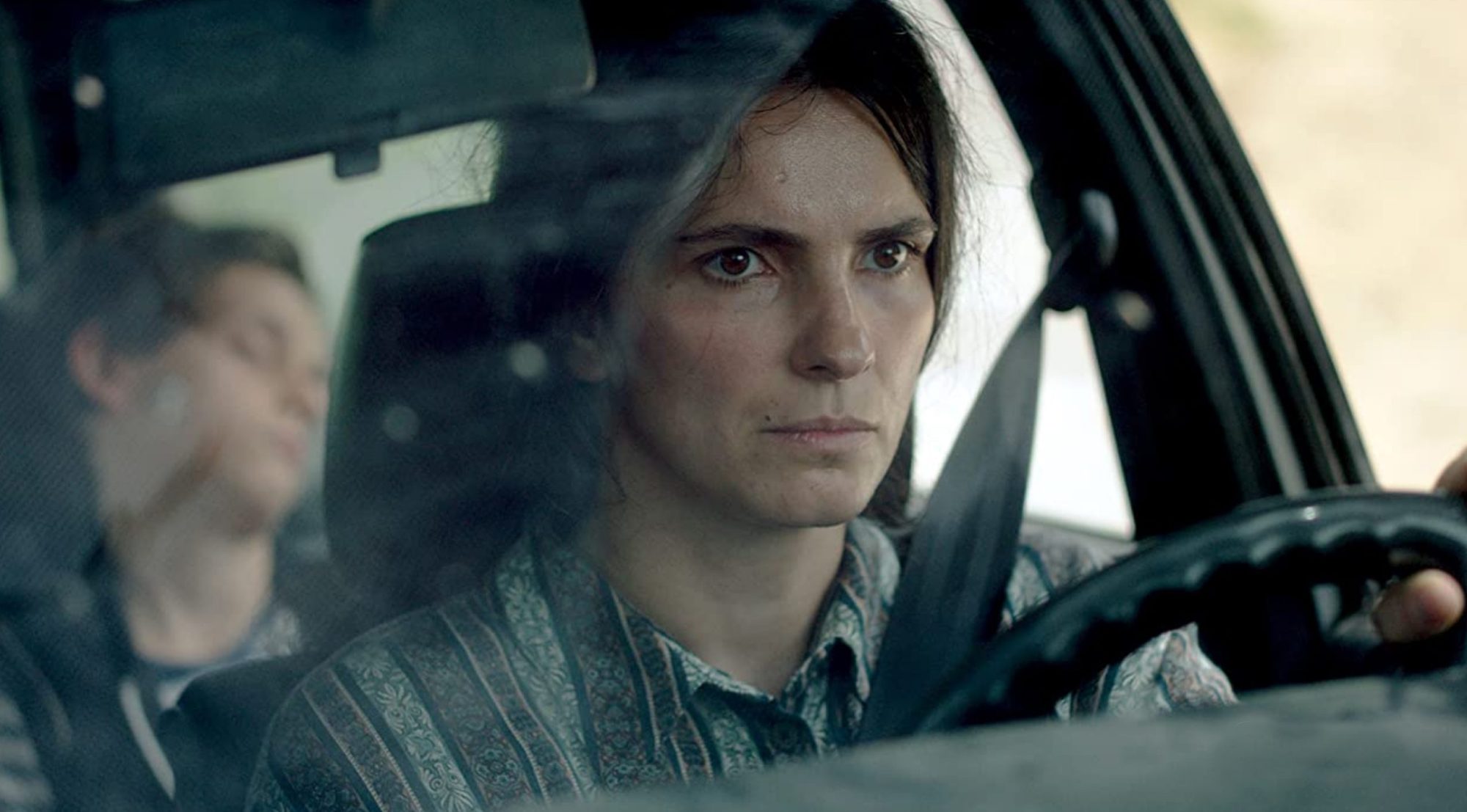
- Golden Globe Awards
Hive (Kosovo)
There is no doubt about it: this is Fahrije’s story. The face of a middle-aged woman, beautiful but grim and framed by long dark hair, is what we first see on screen. For a moment, the woman almost seems to be looking at us, and her dark brown eyes reflect the entire spectrum of human emotion: from misery and distrust towards others to determine to follow through by all means necessary to her end. Fahrije (Yilka Gashi) is on a mission to find her missing husband, dead or alive – even if, in order to do so, she has to sneak into a tent and look through multiple bags of corpses that have been exhumed from a mass grave.
But most of all she is on a mission to survive. And to help others survive.
The story of Fahrije is based on the true story of a real woman from Kosovo whose husband went missing during the Krusha massacres in 1999. Not many people in modern society are aware that on March 25th of that year, more than 100 men and young male teenagers from two picturesque villages in Dinaric Alps, populated mostly by ethnic Albanians, were killed in one day. It was just one of the atrocities that happened in that region during the armed inter-ethnic conflict that is now known as the Kosovo War. A tiny state in the center of the Balkans with a population of fewer than 2 million people, Kosovo lost more than 13 thousand people during this war. More than 1600 are still missing.
For Kosovan writer-director Blerta Basholli, who lived through the war as a child, it was essential to let the world know about what happened. But to make a film about a war in a small country is always a struggle. After meeting the real Fahrije Hoti, Blerta decided to show the war through a woman’s personal story of empowerment in its aftermath by constructing a bridge to connect the audience with the character on a human level. This was no simple task. Fahrije is not exactly a character who is ready to open up about her hardship in order to make herself endearing to others.
But the story of Fahrije is worth telling. Struggling to make ends by producing honey while caring for her two kids and her wheelchair-bound father-in-law, she decides to take charge by providing for her family on her own. After 7 years of searching for her missing husband, Fahrije is ready to move on with her life, even though in the patriarchal eyes of the men in the village it means that she is emotionally abandoning him. Tired of depending on a meager “widow’s” stipends from a women’s support group and nursing bee stings from honey harvesting, she proposes to launch a new business of producing homemade ajvar, roasted pepper spread that the local market has agreed to sell. In a time of despair, Fahrje is determined to start a new “hive” by including other women in the village who find themselves in a similar situation to hers.
Her ambition quickly meets obstacles, from vicious gossip among some women who call her a whore, to physical attacks from the misogynist men of the village. Even acquiring a driver’s license causes strong negative reactions from the village men. It is astonishing how much strength she demonstrates in facing all these challenges, becoming more and more resolute. By the time a mysterious intruder destroys the shelves full of jars of ajvar, smashing them to the ground, Fahrije is not willing to take the abuse anymore. The red roasted pepper spread on a floor – which looks like an enormous mass of blood – arouses in her a determination to stand up for her fellow women.
Ylka Gashi shows the profound development of her character through tiny gestures and very subtle facial expressions, gradually awakening empathy for this remarkable woman. When Fahrije’s face finally softens during the celebrations of the first success with her female business partners, the viewer can’t help but smile and be happy for them all. And this is exactly what Blerta Basholli wanted to achieve with her directorial debut. During a conversation after the screening in Los Angeles, she admitted that, in addition to the importance of telling the story of her people and raising awareness so that history would not repeat itself, she made this film as a tribute to honor Fahrije and all the women who raised their kids and looked after the elderly despite the endless mourning they themselves endured.
Hive became the first film in Sundance history to win all three main awards – the Grand Jury Prize, the Audience Award, and the Directing Award – in the World Cinema Dramatic Competition.

